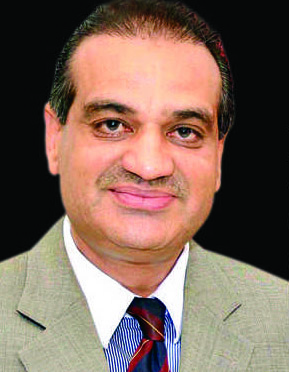Political turmoil in Europe By Ansar Mahmood Bhatti

Europe is passing through turbulent times these days mainly because of general elections in many EU states and partly because the UK has finally invoked Article 50 of the Lisbon Treaty thereby triggering the Brexit. Scotland parliament, in an unprecedented move, announced to hold second referendum for independence from UK – a move the British government would like to resist tooth and nail.
The Netherlands has already held its elections in which the incumbent prime minster Rutte emerged victorious against a hardliner and a staunch anti-Muslim campaigner Geert Wilders. Defeat of Wilders is viewed as defeat of those elements that want to impose their extremist agendas. Geert Wilder is producer of film Fitna – a short film that attempted to demonstrate that the Qur’an motivates its followers to hate all who violate Islamic teachings. The movie showed selected excerpts from Suras of the Qur’an, interspersed with media clips and newspaper cuttings showing or describing acts of violence and/or hatred by Muslims. Wilders in his film has attempted to portray that Muslims were responsible for all acts of terrorism across the globe. Wilders nevertheless received fulsome flake from all and sundry for producing such a film, which according to the majority was a dime a dozen attempt to malign Islam. Wilders had to pay a heavy price for his anti-Muslim sentiments and suffered an ignominious defeat in the recent elections.
The French presidential election 2017 is shaping up to be one of the most unpredictable in history. The French Constitutional Council on March 18, 2017 declared 11 people had qualified to take part in the vote after receiving at least 500 endorsements from elected officials. Three out of the six lesser known runners, which include leftist and Gaullist candidates, apparently crossed the signature threshold at the last minute. Polls currently suggest far-right National Front leader Marine Le Pen will top the first round vote on April 23 but lose in the knockout on May 7 to centrist Emmanuel Macron.
The centre-right’s Francois Fillon had been a favourite until he was engulfed by a financial scandal. He is also under formal investigation for giving his family fake jobs. Similarly, on the left, Benoit Hamon is the ruling Socialist party’s candidate, but has been hit by his former boss Francois Hollande’s unpopularity.
Le Pen has dealt a crippling blow to the European Union by promising she will hold FREXIT referendum to decide whether France remains in the Union if she becomes president. Although her chances, as opinion polls suggest are fairly low, yet she can be a major threat to the European Union. Germany will also hold general elections in September this year to choose its new chancellor.
Europe as a whole is faced with some stiff challenges when it comes to popular leaderships. The leadership deficit in Europe is perhaps the biggest stumbling block for the entire EU to assert itself effectively particularly in international affairs. The chilly meeting between the US president Donald Trump and Chancellor Merkel when she visited Washington soon after he took office although intended to mend fences actually showcased the disagreements of both leaders and even saw an awkward moment. US has serious concerns over Germany’s funding of NATO and Trump went on to express his impatience during the press briefing after the meeting.
One can only reminiscence the tenures of former French President Jacques Chirac and German Chancellor Gerhard Schroder, when Europe under these two leaders thrived both politically and economically. On the international front Europe was far more relevant than it is today. The cornerstone of US-Europe relations then was equality and respect. This phenomenon unfortunately evaporated in the air with the departure of these leaders. Since then, Europe as a whole and France and Germany in particular have been groping for a popular leader.
Another factor that has contributed to high to anti EU sentiments is the single currency euro which is now recognized as an experiment that failed. This failure after just over a dozen years was not a result of bureaucratic mismanagement but an inevitable consequence of imposing a single currency on a very heterogeneous group of countries. Although the adverse consequences of the euro include many aspects like sovereign debt crises and large trade deficits but the high levels of unemployment that plagued the EU countries was probably the overriding issue which has taken a heavy toll on low income people. While one must also appreciate the Schengen visa regime which is ostensibly an unmatched system ever introduced to facilitate free movement of people, but I have never come across a supporter of single currency euro. While I am no economist but my view is that euro has far more disadvantages for the common people than the advantages. Or at least that is the impression which one gets after interacting with people in the street.
Summing up, Europe is indeed in dire need of a popular leadership that could steer it clear of vicissitudes that it is in these days. The ball, therefore, remains in the court of French and German voters!!
Related News

Wakhan Corridor: Vital for CPEC and BRI
By: Qamar Bashir An important development that went unnoticed by the Pakistan media radar wasRead More

Iran’s Pragmatic Approach towards Afghan Taliban
Dr. Muhammad Akram Zaheer Iran’s relationship with the Afghan Taliban is characterized by complexity andRead More


Comments are Closed